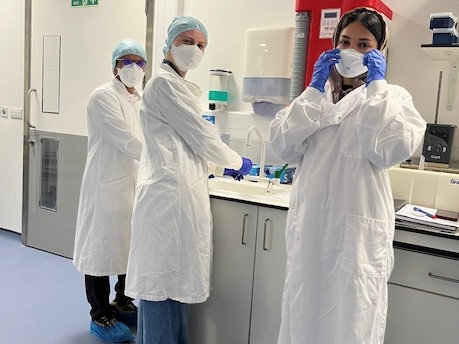
Jasmine Heenan is an undergraduate student from the School of Biosciences. Earlier this year she was awarded a bursary by the Pathological Society and spent eight weeks in a research lab in the Department of Pharmacology and Therapeutics. Here she tells us about her experiences.
I’m a Biological Sciences student entering the third year of my degree. During my second year, I began to consider employability and the type of career I wanted to pursue after graduation. I knew I wanted to work in the lab, but I wanted hands-on experience to refine my skills and gain a sense of what day-to-day research actually involves.
After reaching out to module leads about gaining research experience and expressing my interest in personalised medicine and pharmacology, I was encouraged to join the Pathological Society. Through this, I learned about their undergraduate elective bursary, a fantastic opportunity that offers 8 weeks of paid laboratory experience.
I spoke with Dr Rebecca Burton from the Department of Pharmacology and Therapeutics about her research on cardiac ageing and pharmacology, which focuses on developing a three-cell human heart model to promote more ethical and effective cardiac research. I was excited by how translational and meaningful this work was, and I was eager to contribute to it. With this in mind, I applied for the elective bursary grant under the project title ‘Studying cardiac disease mechanisms in human cell culture models’.
During my time in Dr Burton’s lab, I had the chance to practise and develop a range of laboratory skills, including molecular biology, cell biology, imaging, and data analysis. These techniques were taught in an environment that encouraged independence, problem-solving and critical thinking. I was able to explore methods and technologies that I would not have encountered in the standard curriculum.
Engaging with this research deepened my understanding of cardiovascular science and gave me valuable insight into how laboratory findings can inform clinical progress. The skills I have gained will be incredibly useful as I begin my honours project in third year, and they have equipped me with a confidence that I did not have before.
Ultimately, this experience has confirmed my ambition to pursue a career in research, particularly projects that aim to improve our understanding of disease and drug safety. Following this summer, I plan to transfer onto the integrated master’s course to further develop my research abilities and better prepare myself for a future in scientific discovery.